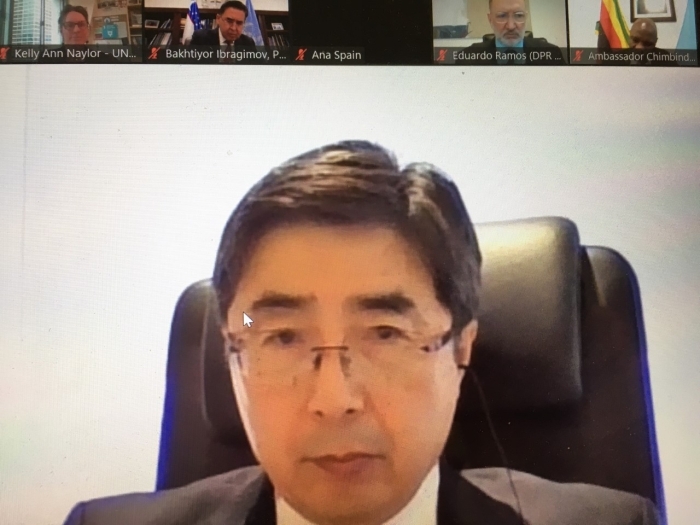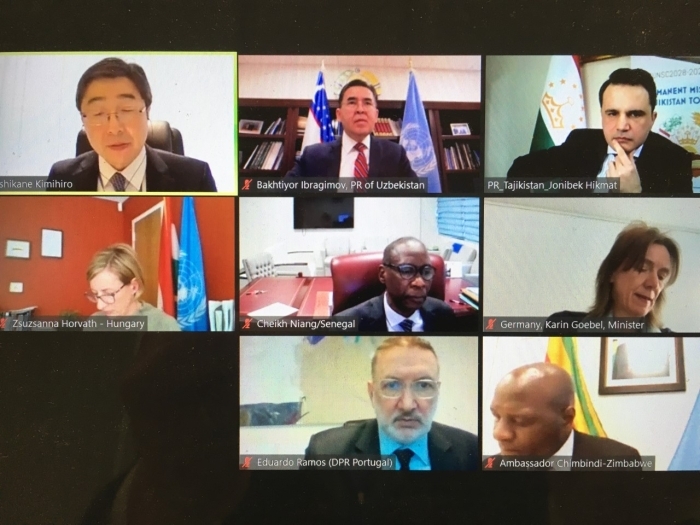水フレンズグループ会合における石兼大使ステートメント
令和4年4月5日
 |
 |
(As delivered)
Thank you very much, Ambassador Hikmat, and a warm welcome to all of you who have joined this very important meeting today.
First, I would like to update on the "4th Asia-Pacific Water Summit" to be held in Kumamoto, Japan, from the 23rd to the 24th this month.
This Summit will be an important step toward the UN 2023 Water Conference and is expected to contribute to the mid-term review of the Water Action Decade.
The Summit will compile messages on key issues related to the achievement of the water-related SDGs and good examples of how to resolve water-related issues from the Asia-Pacific region. The output of this Summit will be ‘inclusive, action-oriented, and cross-sectoral’ as agreed in the Conference’s Vision Statement.
Second, let me share with you Japan’s local efforts. The host city, Kumamoto, is a beautiful city which has made great strides in recovering from the 2016 Kumamoto Earthquake. Kumamoto city has spearheaded many good practices, such as conserving groundwater.
Kumamoto is also instrumental in water-related education. For example, the Prefectural government sends representatives to schools to give lessons on water-related topics and has distributed a supplementary textbook to all elementary schools entitled "Secrets of Kumamoto's Groundwater".
Third, let me emphasize the cross-cutting nature of water issues. Needless to say, clean water is indispensable for health. Insufficient supply of water hampers economic development and can even destabilize a society. Water-related disasters such as floods, sea level rise, and tsunami endanger human lives. Thus, water is a key element for the achievement of SDGs and crucially important for human security. The cross-cutting nature of water issues requires a holistic approach, with emphasis on empowerment and institution building.
Against this background, Japan has consistently been cooperating with other countries in water-related areas. Let me share with you one example in Nepal.
In March 2021, the Government of Japan provided grant assistance to Nepal for a project to provide water and sanitation facilities as well as hygiene education in one district in the country. The main activities of this project are to construct and repair drinking water supply facilities, construct gender-friendly toilets, establish and strengthen school WASH management committees, and provide menstrual hygiene management education. Combining all these activities, this project improves access to safe water and strengthens gender equality through education.
As we work together to build an inclusive and effective path toward the achievement of the 2030 Agenda and the Water Action Decade, our commitments should reflect changing needs on the ground in order to make commitments into reality.
We look forward to discussing with all of you the way forward to set a clear agenda and create impact for future generations.
With respect to the modality of the 4th Asia-Pacific Water Summit, we have now decided to prepare a face-to-face format. We will warmly welcome the Heads of State and Government and the other high-level participants. The online format will also be offered to those who cannot travel to Kumamoto City.
I thank you very much.
